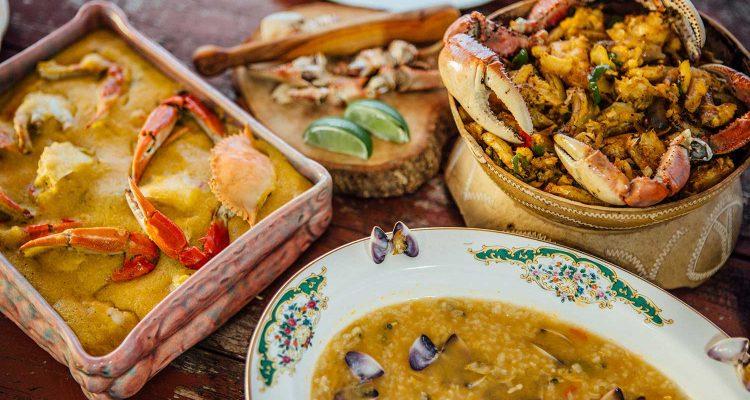Cuba, in many ways, has long been a place of lore. An isolated Caribbean island that has been systematically secluded by its ideological foe to the north, Cuba has often been cast as a victim of circumstance, a child caught in a petty argument between petulant parents. But such narratives remove agency, such stories make Cuba a place where interpretation is cast upon it without Cuba itself having much of a say. It is a colonial perspective and one that is becoming ever more fraught. This perception — or at least a small fraction of it — is what the documentary “Cuban Food Stories” seeks to challenge. The film, which aims to catalog the myriad cuisine from around the island, also wants to recast the country as a historied place full of vibrant culture and marvelous uniqueness. For all it’s goodwill, though, “Cuban Food Stories” never feels like anything more than an appetizer to whet your appetite.
“Cuban Food Stories” is built on a simple premise: to capture on film the culinary treasures of the various regions of Cuba, many of which, due to outside forces, are in danger of being forgotten. The film is divided into chapters, each of which features a new city or town or river, and each focusing on the unique gastronomical riches found therein. The chapters range as wide as the island, from eating freshly caught fish while still on the boat used to catch it, to butchering and roasting a whole pig for New Year’s Eve, to ingredient shopping with restaurateurs who wouldn’t be out of place in New York or Paris.
The narrative binding all of these stories together is that of director Asori Soto, who was born in Cuba but has lived most of his life in New York. Soto’s quest to film these culinary wonders is driven, he says in voiceover, by the feeling that he is disconnected with his homeland, and his worry that some of these traditions may soon be lost (one cooking school he visits closed shortly after filming, he reports). And, all in all, its an admirable goal that pays off with some marvelous and mouthwatering footage that revels in the connection between people and the food that they consume — a connection that has long been lost in America, where ingredients are shipped from across the globe to be sold in sterile, fluorescent-lit grocery stores.
But the stories that Soto collects never coalesce. Certainly, by the end of “Cuban Food Stories,” a picture has been painted of the various foods and flavors across the country, but this picture feels devoid of the meaning that Soto seems to be striving for. His voiceover repeatedly grasps at the larger picture of it all — the desolation that once struck the country, the vibrant and peaceful tenacity of Cubans, and the rich traditions that endure despite all odds — but no meaningful insights are ever really achieved.
Still, while Soto might fall short of his lofty ambition, he does create an eclectic body of portraits of Cubans, ranging from farmers who live off the land to street vendors to professional chefs. And these portraits are handled with care, casting a loving hue over each subject, place and tradition. This admiration and careful craft, though, makes the larger flaws all the more obvious — with such tasty ingredients, it’s a shame that the whole of the meal is forgettable.
Generally, it would be easy to mistake “Cuban Food Stories” for an especially adept Food Network show, with its shoehorned personal narrative strung between a collection of pretty but disparate stories. Taken on their own, these stories are worthy glimpses into a unique relationship with food and the role that tradition plays in meal preparation and eating. But it’s hard not to feel that something is lacking, that some throughline is missing, that the key narrative entree was lost amid the vibrant but not-quite-filling courses. [B-]
Browse through all our coverage of the 2018 Berlin International Film Festival by clicking here.

